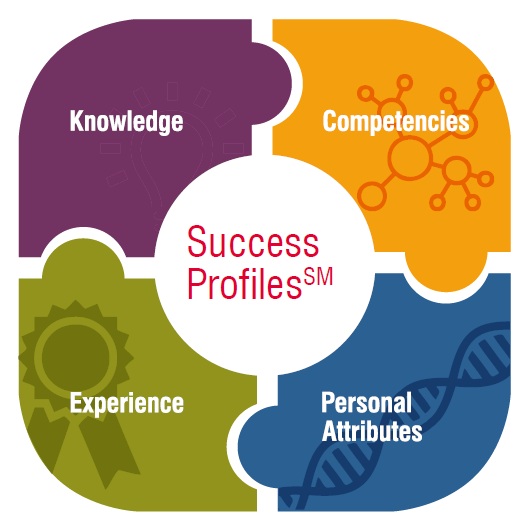
What parameters would help identify successful leaders? i.e. assessing leaders internally – from Hospital administrators to COO of an organisation or from technical expertise to hospital administration. Are leaders ready to take on newer roles? How Assessment can help identify this and how it is extremely detrimental to the success of the leader and in turn detrimental to the institution.
Healthcare has become one of India's largest sectors both in terms of revenue & employment. The total industry size is expected to touch USD280 billion by 2020. The hospital segment is highly fragmented with ~90 per cent of the hospitals being established and operated by doctors & trusts and the balance are being managed by corporate hospitals chains. The age old unorganised and extremely fragmented sector has started seeing a lot of change in the last 5 years. There is a big buzz happening in the healthcare space. We are seeing a rapid rise in the organised hospital chains. This is great news for the industry, finally we will start seeing growth in a planned manner, quality standards being raised, patient care showing significant improvement, newer technology getting introduced at a much rapid pace.

This growth comes with its own set of challenges. I agree that the fundamentals of running a hospital does not change but the business is evolving at a very fast pace. The organised hospitals are using all the tricks in the books of marketing and management to raise their game. You might have not realised but these hospitals are fighting the marketing battles just like any other FMCG, Consumer Durable, Retail giant. They are using all mediums of communication – traditional and modern to reach you. You might have not realised but they are also visible in your favourite blockbuster movies. They are luring you with health checkup packages. They are engaging you over emails, test messages, television, radio, everywhere. They are engaging external survey companies to check the employee engagement and patient satisfaction scores. Right from the time you step into the hospital, when you are in the queue for getting your OPD appointment or IPD appointment, when you are in the waiting area or cafeteria you are surveyed so hospitals can build a better experience for their target audience.
This business model is very different from the ones hospitals were used to running. And it is evolving very quickly. In fact, it is very close to the one that corporations in the other industries are running. The CEOs and the senior leaders of these organised hospitals have not experienced this ever before. So how do they prepare themselves for running these professional organisations differently yet work with the unique fundamentals of running a hospital operation?

I would suggest simple 3 steps - IDD (Identify, Diagnose, Develop)
Regardless of the business priorities and changing business context, the CEO will always need the right talent to execute their strategies. But if the leaders don’t know what to look for then what? It is almost like playing football without the goal posts. The key is to determine competencies and creating what we call “Success ProfilesSM” which is tied to your organisational future goals. There is too much of emphasis given on what people know (the knowledge) and what people have done (the experience). While these two are very relevant, they unfortunately have very little impact on what leaders in the healthcare sector are expected to do. The challenge is that no one has experienced or anticipated this kind of growth in the healthcare space. So whatever leaders have learned in the past or have gained rich experience of is almost irrelevant to what is expected off them in the future. Hence the organisations will have to dive deep into the future and foresee the competencies they need to adopt and learn. At the senior leadership positions, leaders’ personal attributes will become increasingly important. With an unknown and uncertain future, a lot of ambiguity and uncertainties are attached, and how leaders deal with this is largely riding on their personality profiling. The grave mistake most organisations end up making is that they put excessive emphasis on personality. I always tell leaders: “Personality is like a horoscope, it can be read in different ways. The fundamental principle is that behaviour always rules.” What we display to the world in action is what counts. Also, personality profiling does not account for a very critical element in an adult learning ‘The Learnt Behaviour’. Many evolved leaders with years of experience and experimentation with their own self have learnt who they are and what can stop them. These leaders adapt!
Their personality scales might show something very contradictory to what they demonstrate as behaviour day-in and day- out. Hence looking at the complete Success ProfileSM in its totality is critical.
The first critical step of identifying the futuristic competencies that are relevant for your hospital business is over. But the job is half done. If you want to know answers to one of the following questions, then read on…
• Are my senior leaders future ready?
• Are my promotion / placement decisions giving me leaders that can be strategic, operational and yet drive clinical excellence in this fast-changing world of healthcare?
• Are my leaders getting targeted development inputs and am I able to coach and guide them with job relevant inputs?
If these are the voices playing in your mind, then you will need to assess them against the target competencies defined in the Success ProfileSM.
The options are many when it comes to assessing leaders on the target competencies.
• A multi rater tool like 360 degree inviting others working with the leader to respond to the survey. This is good to capture perceived behaviours but it looks into leaders behaviours demonstrated in the past and not look into the future
• An in-depth behavioural interview is a very effective tool but it as well looks at past behaviours
The challenge with these two options is that they are looking back in the past to predict the ability of the leaders to do deal with future which these leaders have never experienced before
• A simulation-based assessment centre has the highest face validity as well as predictive validity. The senior leaders are immersed in a simulated hospital setup and made to run the business for one whole day. At the backend the target competencies from the Success
ProfileSM are configured carefully to give the leaders a safe environment where they can demonstrate their proficiency on the target competencies. Basis this simulated assessment the leaders are able to get a detailed feedback on the strengths and development needs as they relate to the unique demands of a CEO, COO or CNO in the health care industry to accelerate the development process at a fast pace.
Once the simulated assessment has identified the top strengths and development areas leaders will have to work on a robust development plan with SMART (Specific, Measurable, Achievable, Relevant, Time bound) development goals. The key here is not in just writing a development plan, but how the leaders reviews his development goal and measures progress against the plan. Critical business metrics are reviewed in detail regularly, development goals need to be treated like critical business metrics and need to be actioned and reviewed similarly.
Let me make a disclaimer here: given that we are talking about leaders at the top of the house in the healthcare space, I am not going to discuss about the accountability and ownership that the leaders will have to display for driving their development. I am assuming it is a given and the leaders are motivated to development themselves and will take charge of their development to build an edge for themselves in the healthcare space.
I often get this question: “Which of the three steps is most important?” and my response is that just like in business where one has to drive multiple things simultaneously, these three steps go hand in hand. One cannot put over emphasis on one and underplay the others. If leaders are finding themselves not getting relevant development inputs to sharpen their saw, it is time they look for alternative mediums that will provide them with deep and relevant inputs.